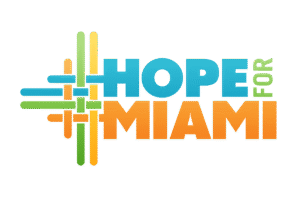Hope for Miami’s READY4Life program, evaluated in partnership with BSRI over a period of five years, equipped thousands of young people in Miami-Dade with knowledge, skills, and confidence to build safe, healthy relationships amid systemic challenges.
Overview
Higher-than-average rates of teen pregnancy, HIV infections, domestic violence, and poverty have created overlapping risks that make the transition to adulthood especially challenging for Miami Dade’s youth. Hope for Miami recognized the urgency of equipping youth with skills to form safe, respectful, and fulfilling relationships and, in 2020, they launched READY4Life with support from the Office of Family Assistance within the Administration of Children and Families.
BSRI was engaged as the independent evaluator and tasked with designing an independent multi-year evaluation. This included not only measuring outcomes but also strengthening implementation quality through real-time feedback loops. The timing was crucial as schools navigated COVID-era disruptions and changes in state education policy.
Our Approach
BSRI partnered closely with Hope for Miami staff and educators to create a rigorous evaluation. Our work unfolded across three core phases:
- Designing the Evaluation Framework. In collaboration with Hope for Miami, we refined the evaluation plan, established measures, confirmed IRB and site approval, and set up systems – both in-house and through nFORM 2.0 – to capture demographics, engagement, and outcomes.
- Strengthening Implementation Quality. Monthly HFM team meetings, site visits, focus groups, and quarterly advisory board meetings ensured fidelity to Relationship Smarts 4.0 and 5.0 and culturally appropriate adaptations. Focus groups centered youth voice, and Hope for Miami staff used this feedback to make continuous improvements.
- Collecting and Learning from Data. Our multi-method design included surveys, focus groups, and classroom observations that documented both the quantitative shifts in knowledge and the youths’ lived experience behind the numbers.
This approach allowed READY4Life to serve as both a direct intervention and a learning system, feeding insights back into classrooms, staff training, and community dialogue.
Impact
Quantitative Insights
- READY4Life reached 2,243 young people ages 14–24 across 35 Miami-Dade sites. Participants demonstrated a 12-percentage point improvement in knowledge of healthy relationships, with the greatest gains in areas where understanding was lowest at baseline—emotional maturity, consent, and sexual health – with more than 90% reporting greater confidence in applying these skills.
Qualitative Insights
- Beyond numbers, READY4Life transformed how youth approached their daily lives. Students described applying lessons in real time—whether learning to pause during conflict, recognizing toxic dynamics, or choosing to leave unsafe relationships. Others shared what they learned with siblings, partners, and peers, extending the program’s influence beyond the classroom and into homes and communities.
Implementation Insights
- Facilitator authenticity—sharing personal stories and drawing on relatable examples—proved essential for building trust and engagement.
- Classroom observations confirmed 100% fidelity in curriculum delivery, and facilitators enhanced engagement through creative adaptations such as scenario-based learning, interactive games and relatable media examples in addition to Spanish-language supports.
What We Learned
The READY4Life evaluation showed that young people are eager to engage in conversations about relationships and that even structured, short-term interventions can produce meaningful gains. Participants demonstrated measurable improvements in knowledge, particularly around emotional maturity, consent, and sexual health, while also correcting misconceptions such as the belief that “love alone is enough to sustain a marriage.” Communication skills emerged as the most valued takeaway, with students applying conflict resolution, active listening, and boundary-setting not only in romantic contexts but also with peers and family. The program supported lasting behavior change, with participants describing ending unhealthy relationships or making more thoughtful choices in new ones, pointing to the program’s potential to foster agency and reduce risk.
During program implementation, fidelity to the curriculum, coupled with creative adaptations like interactive games, cultural references and language inclusivity, increased receptiveness to learning while keeping content relevant across diverse groups. Shifting youth perspectives reflected broader trends, underscoring the importance of expanding relationship education beyond marital outcomes to focus on communication, respect, and mutual support.
The study positioned READY4Life as a model for replication in other urban, minority-majority settings and showed that when youth are trusted with honest conversations and equipped with practical tools, they carry that knowledge forward—strengthening both individual well-being and the relationships around them.
Team Behind the Work
Partners
Funders

